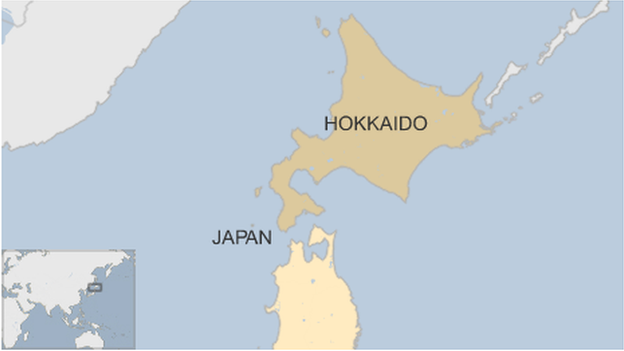Japanese missing boy: How did Yamato Tanooka survive?
- Published
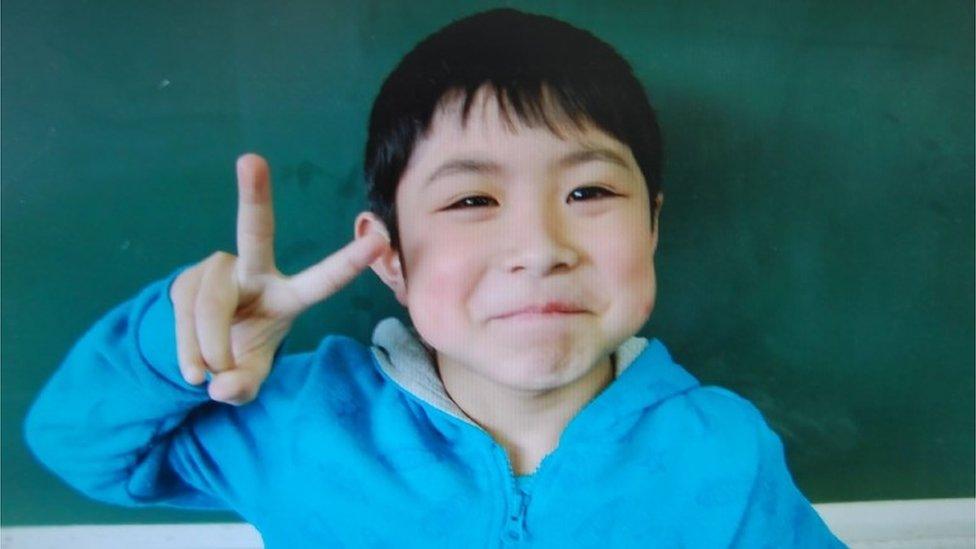
Yamato Tanooka, seen here in an older picture, had not been seen since last Saturday
A seven-year-old Japanese boy who went missing for nearly a week after his parents briefly left him in remote woods as punishment has been found safe and well.
How did Yamato Tanooka survive and find shelter, and how much of a danger were the bears that live in the region?
How did he come to be on his own?
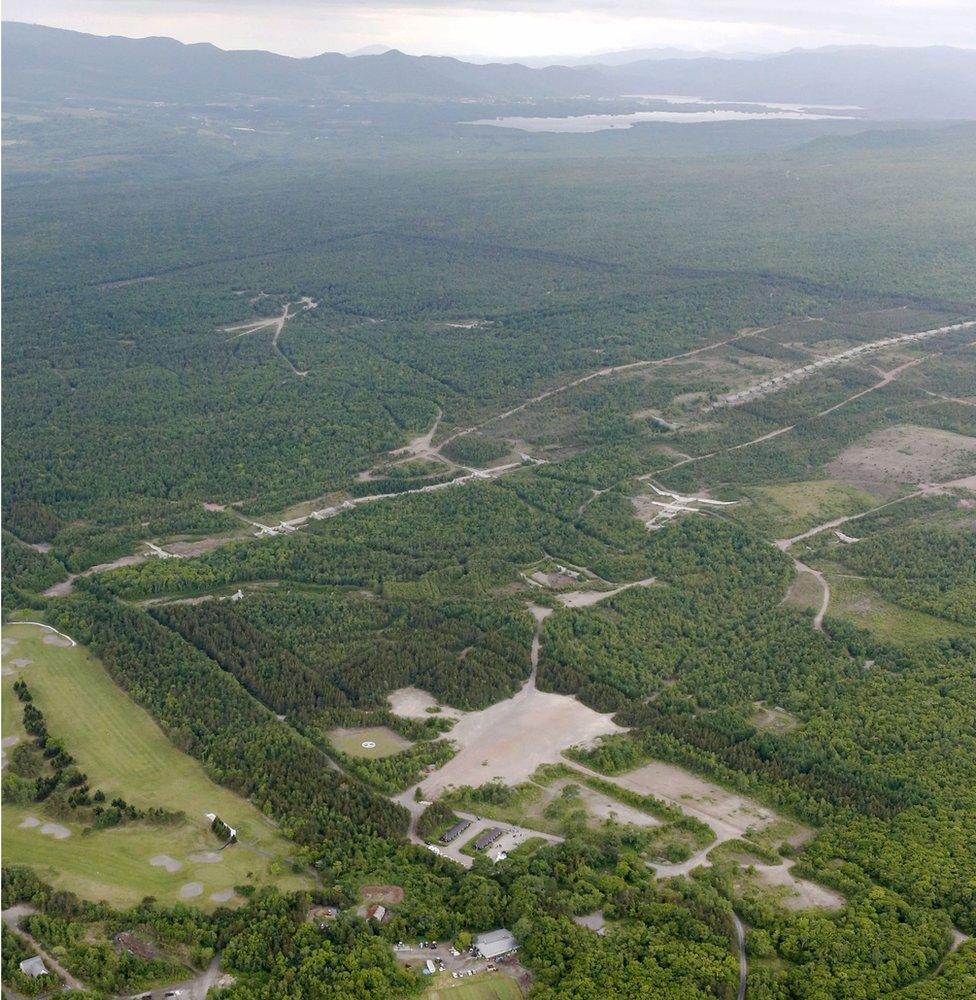
The area around the military base has few houses and dense woodland
Yamato's parents had briefly left him by a wooded road near Nanae in Hokkaido region to punish him for throwing rocks on a family day out. When they went back minutes later he had gone.
He was dressed in only a T-shirt and jeans, in an area where temperatures can dip as low as 9C at night.
"It's been colder than it usually is at this time of year," Ross Findlay, founder of the Niseko Adventure Centre in the region, told the BBC.
"We've had snow on top of the mountain in Niseko, though that might not have been the case of Nanae, which is further south. But for a small boy who doesn't have much body fat, that's a problem."
What is the terrain like in the area?
The remote region is densely forested, with oak and birch trees and heavy undergrowth.
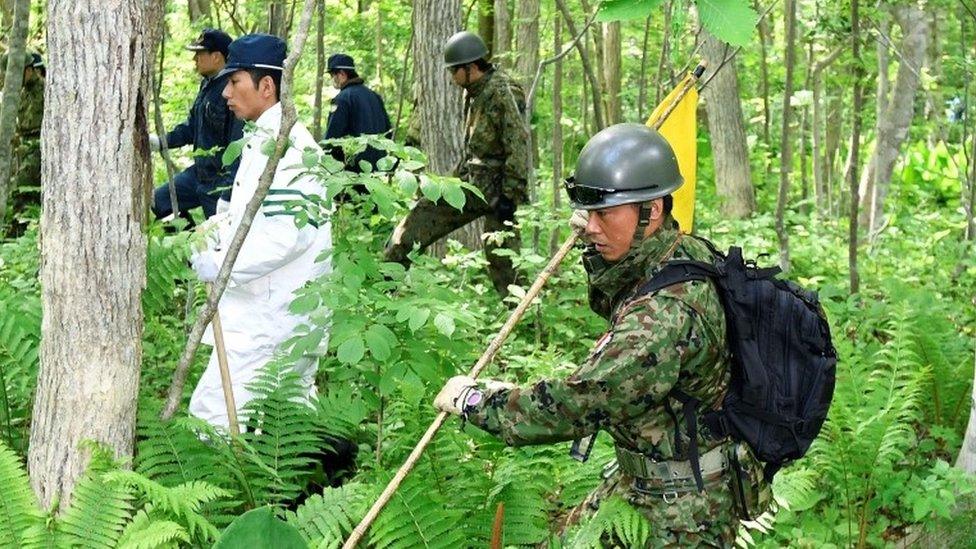
"The undergrowth in the forest is made up of a thing called Sasa," said Mr Findlay.
"It's like bamboo but quite thick and very hard to get through, so it's a lot different to what other countries might think of forest.
"It's too hard to walk through so not many people wander into the woods. You really need to be on some kind of trail otherwise you just can't get anywhere.
"Especially for a small boy if he's lying on the ground with dense undergrowth, it can be very hard to find."
The search was also hampered by heavy rains.
How did he find shelter?
Yamato appears to have been both lucky and sensible.
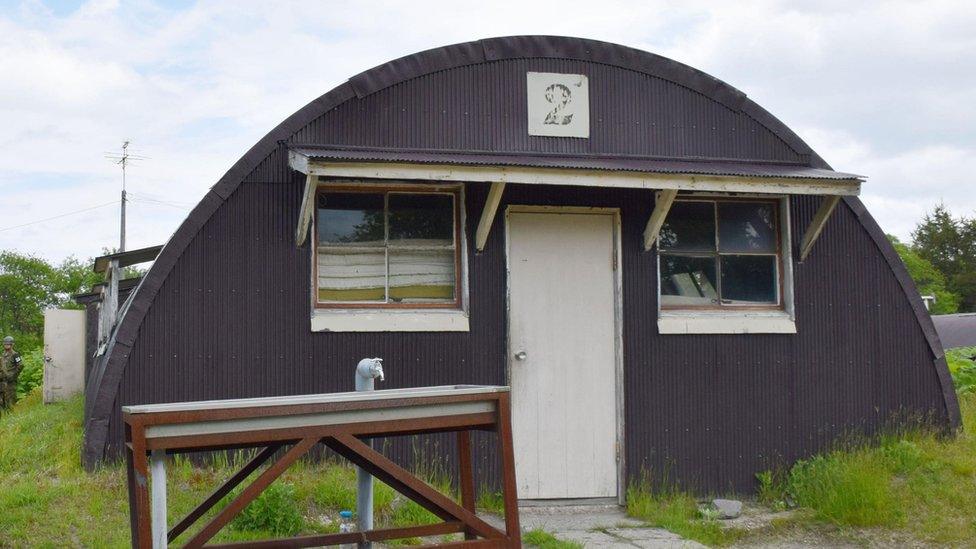
The boy was discovered inside a military hut, reportedly some 5.5km (3.4 miles) away from where he went missing
He was discovered at a military base on Friday, about 5.5km (3.4 miles) from where he went missing last Saturday.
The site had allegedly already been searched on Monday morning, but the boy was not found. The search team comprised 180 people and search dogs.
The soldier who found Tanooka had not been part of any previous rescue efforts, AP reports.
Yamato told police he had walked to the military base by himself soon after his parents left him.
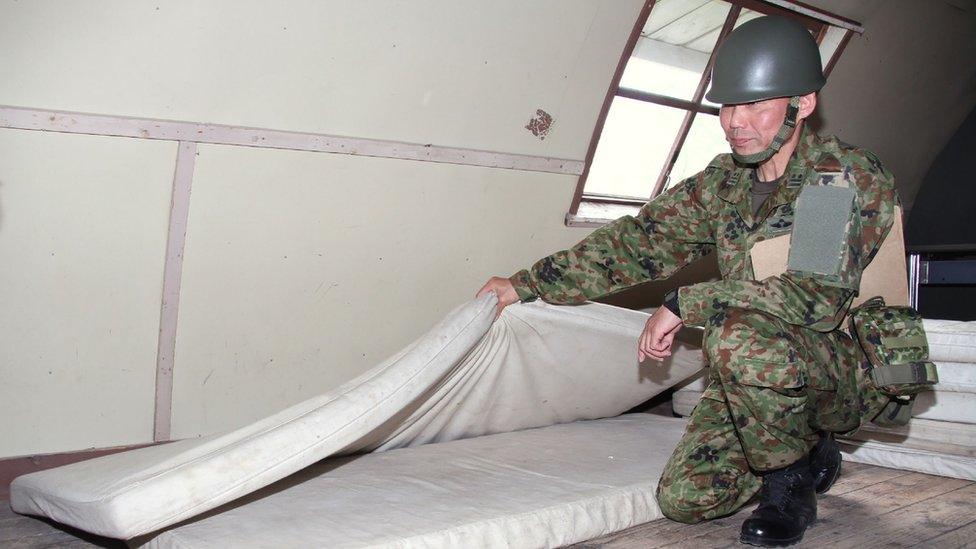
The seven-year-old had walked "though the mountains" until he found the military building, according to NHK
"I drank water to get by," he reportedly said. "There wasn't anything to eat."
He slept on mattresses spread on the hut floor.
Could he have found food in the woods?
It's very unlikely at this time of year, according to David Niehoff, president of Kanto Adventures.
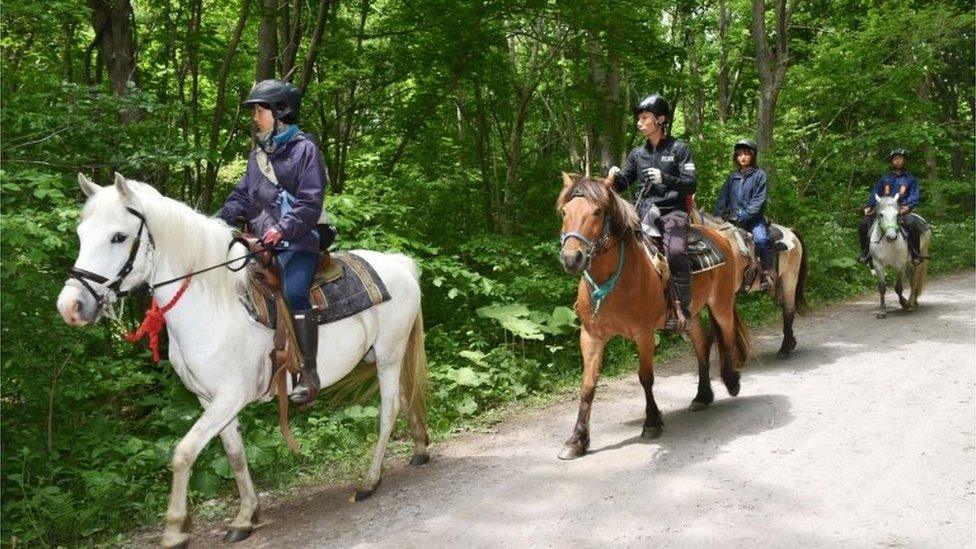
Search teams on horseback were part of the search in the remote area
"Spring is just getting started so things are just starting to come out of the ground," he said.
"Local knowledge is also necessary to know what to eat safely because there are poisonous plants growing too, but in general there's not a lot of wild food."
The streams around Japan are generally safe to drink from, but certain streams in the mountains of Hokkaido carry a parasite that makes it essential to boil water before drinking, says Mr Niehoff.
However, it would have been safe to drink from a tap like the one the boy found.
How is he doing now?
Doctors at the hospital where he is being treated say he has only minor injuries, but was suffering slightly from hypothermia.

Though he was reported to be in good health Yamato was taken to hospital for checks
Not having food "would have caused him to run even lower on energy, which would have put him in greater danger", said Mr Findlay.
What about those bears?
Hokkaido is also home to brown bears, which can be as big as 2m high (6ft 5in), but they weren't necessarily a threat.
"The bears generally kept to their own, so it's actually better to make more noise so they are aware of your presence, which makes them likely to go the other way," said Mr Findlay.
"They can usually get quite hostile if you surprise them instead."
What would be the best advice to a child lost in the forest?
"Stay dry, stay warm and stay put," says Mr Niehoff. "It's much harder to be found if you're moving about. People can be more easily found from their last known location."
However, Mr Findlay added in the boy's circumstances, he had acted in the best possible way.
"He found himself shelter, water, and something to keep himself warm so I don't think you can do too much from that," he told the BBC. "It's quite a miracle, really, after six days."
- Published3 June 2016

- Published3 June 2016
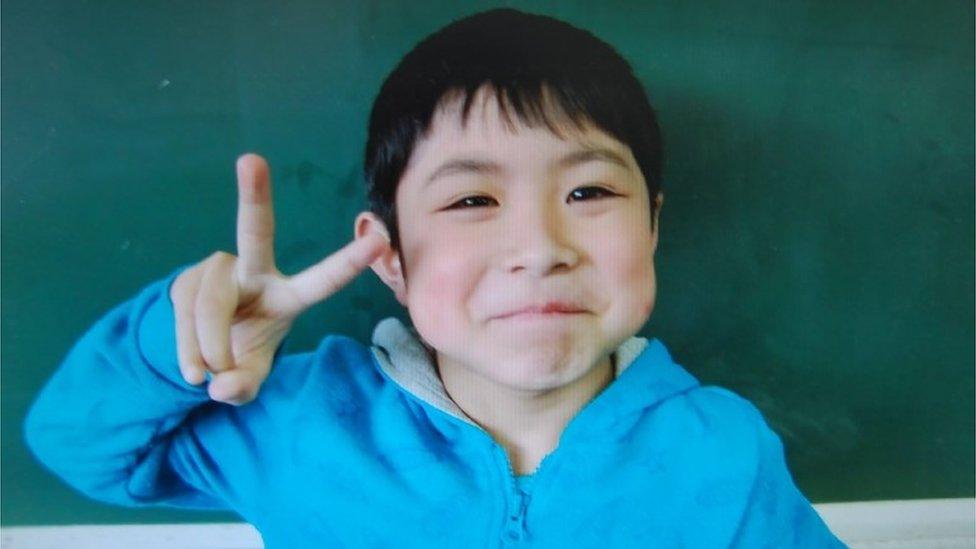
- Published1 June 2016
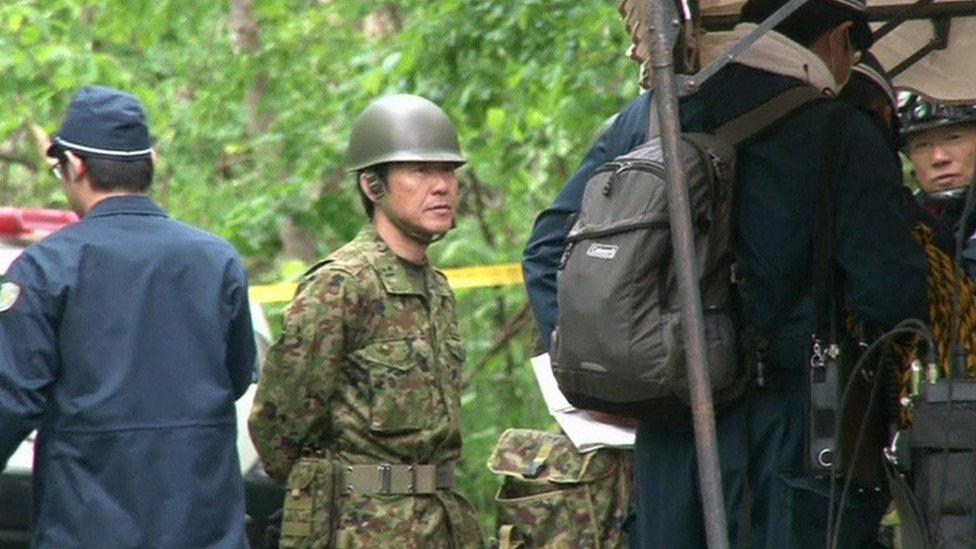
- Published29 May 2016
